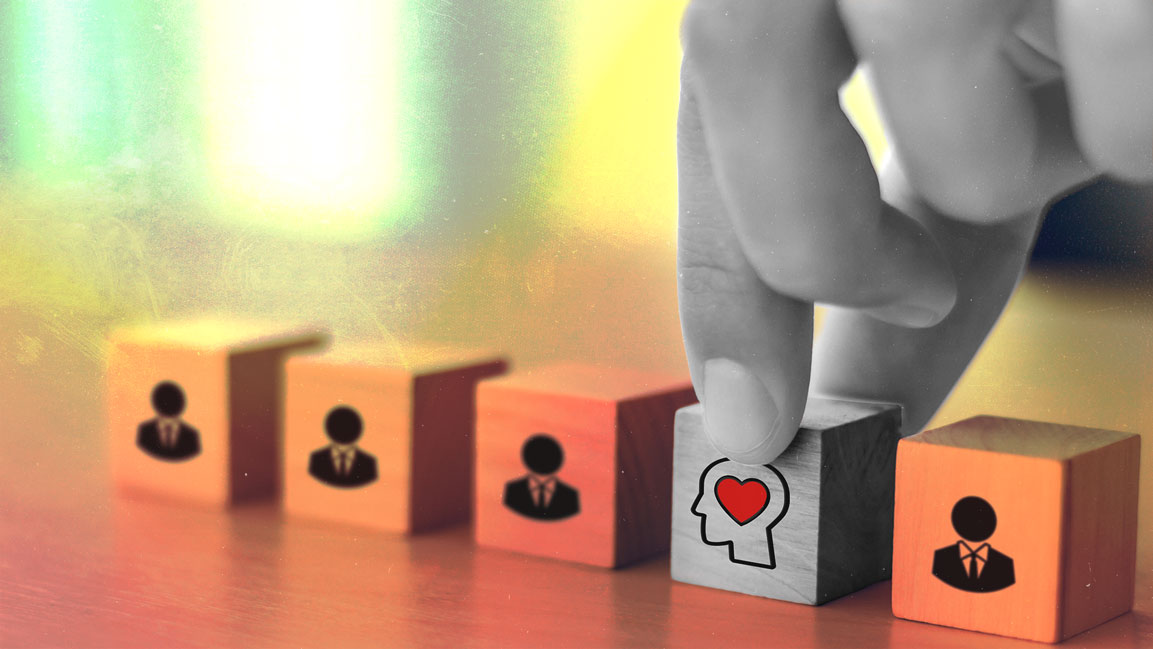- | 9:00 am
Is it time for GCC workplaces to treat mental health like a business metric?
As mental health moves up the corporate agenda, companies learn that real well-being drives retention, resilience, and sustainable success.

In boardrooms, conversations once dominated by KPIs and quarterly forecasts now include a different metric: emotional well-being. Long disregarded, mental health is fast becoming a strategic pillar for companies across the Middle East.
As national strategies, such as Saudi Arabia’s Vision 2030 and the UAE’s National Strategy for Well-being 2031, gain momentum, and with stress, anxiety, and other mental health challenges impacting many people, employers are waking up to a new reality: mental wellness isn’t optional. It’s a business imperative.
The shift is being driven by more than policy. It’s driven by a generation of workers unwilling to burn out for a paycheck and by visionary leaders who understand that employee well-being is the foundation of sustainable performance.
THE REGIONAL WELLNESS MATURITY GAP
According to Inge Van Belle, Senior Client Partner at Korn Ferry and author of Employee Engagement, What Else?, the pace of well-being integration varies across the GCC.
“The UAE has had well-being on the national agenda since 2016, with initiatives like the Chief Happiness Officer appointments and workplace well-being frameworks,” says Van Belle. “But there’s still a significant gap between policy and practice. Many companies are just beginning to translate national ambition into real strategy.”
Meanwhile, in Saudi Arabia, the focus is newer but accelerating fast. “Vision 2030 is driving human capital development, and younger talent and multinational employers are normalizing mental health conversations,” she says. “Physical health and safety used to dominate. Now we’re seeing holistic approaches emerge.”
WHY THE ROI IS NOW PERSONAL
What’s the ROI of investing in mental health? This question is still frequently asked, but the answer is changing.
“The true ROI is transformation,” says Chetna Chakravarthy, CEO of Wishtok, a UAE-based well-being app offering therapy, coaching, and real-time support in multiple languages. “We’ve seen burnout turn to breakthroughs, resignations reversed, and leaders become more emotionally intelligent. Not through content or webinars — through honest, 1:1 support.”
Wishtok is building impact dashboards for clients to measure tangible benefits: reduced absenteeism, improved happiness scores, and greater productivity. But Chakravarthy insists that real success is felt before it’s measured.
“Mental wellness is a basic necessity. Not a reward for hitting targets — a requirement for hitting them without self-destruction.”
Designing wellness spaces without cultural safety makes them performative. “I’ve seen beautiful wellness rooms sit empty because employees don’t feel permission to rest,” says Lorna King, workplace culture expert and co-host of the UAE-based podcast Fast Brained Women. “A space only works if the culture makes it usable.”
BEYOND THE OPTICS
Government-backed certifications in the UAE, like the Guide to Happiness and Well-being at the Workplace, have encouraged structure — but the results are uneven.
“These frameworks raise awareness and help with talent attraction,” says Van Belle. “But retention? That depends on whether well-being is embedded — not just displayed on a certificate.”
In fact, she warns of the rise of “well-being washing” — organizations promoting mental health on social media while failing to address internal stressors, toxic management, or unrealistic workloads.
“Over half of employees globally believe their employer has engaged in well-being washing,” she cites recent studies.“Glossy posts don’t replace psychological safety.”
THE ESG FRONTIER — AND THE DESIGN DILEMMA
As ESG reporting gains traction in the Gulf, employers are starting to link well-being to their “social” commitments.
“The most progressive organizations are using workplace design not just to attract talent or polish brand image — but to retain people by making them feel safe and supported,” Van Belle explains. “Design only becomes strategic when it aligns with leadership behavior, flexibility, and trust.”
King adds a note of caution: design can’t substitute for trust. “The most impactful design choices aren’t aesthetic. They’re inclusive and human-centered — shaped with employees, not just for them.”
BALANCING CULTURAL SENSITIVITY AND GEN Z EXPECTATIONS
Navigating mental health in a region steeped in traditional norms requires nuance. But that doesn’t mean silence.
“When I moved to the UAE in 2012, I was told to never disclose mental health medications to an employer,” King recalls.“Now, we’re seeing senior leaders publicly back well-being. But we still can’t tell people to ‘meditate more’ in systems that aren’t psychologically safe.”
Van Belle believes Gen Z is accelerating change. “They’re more vocal, emotionally intelligent, and unwilling to work for brands that don’t walk the talk. Fancy offices won’t keep them — genuine care will.”
Still, direct conversations about mental health remain delicate, especially
in multicultural teams. Confidential tools like Employee Assistance Programs (EAPs) are gaining traction in multinationals, but Van Belle points out that without trust and leadership backing, even the best tools go unused.
BRIDGING THE SME GAP
The UAE’s Federal Law No. 10 of 2023, which protects employees from termination due to mental health conditions, marked a turning point. However, implementing it across small and medium-sized enterprises (SMEs) presents challenges.
“EAPs and well-being platforms are often out of reach for smaller businesses,” Van Belle notes. “In those settings, culture and leadership matter more than programs. A safe workplace doesn’t require a massive budget — it starts with empathy.”
Wishtok is working to bridge that gap with sessions, free webinars, and multilingual access. Chakravarthy emphasizes that mental wellness must feel normal — and affordable.
“Therapy shouldn’t be a luxury,” she says. “It’s everyday support, made accessible.”
Across the region, mental health, once whispered about or hidden, is becoming central to the conversation about what makes a company worth working for.
From compliance laws to cultural change, tech tools to trust-building, the question is no longer whether companies should prioritize well-being.
“People don’t need more content on self-care. They need systems of support that are consistent, affordable, and real,” says Chakravarthy.







































